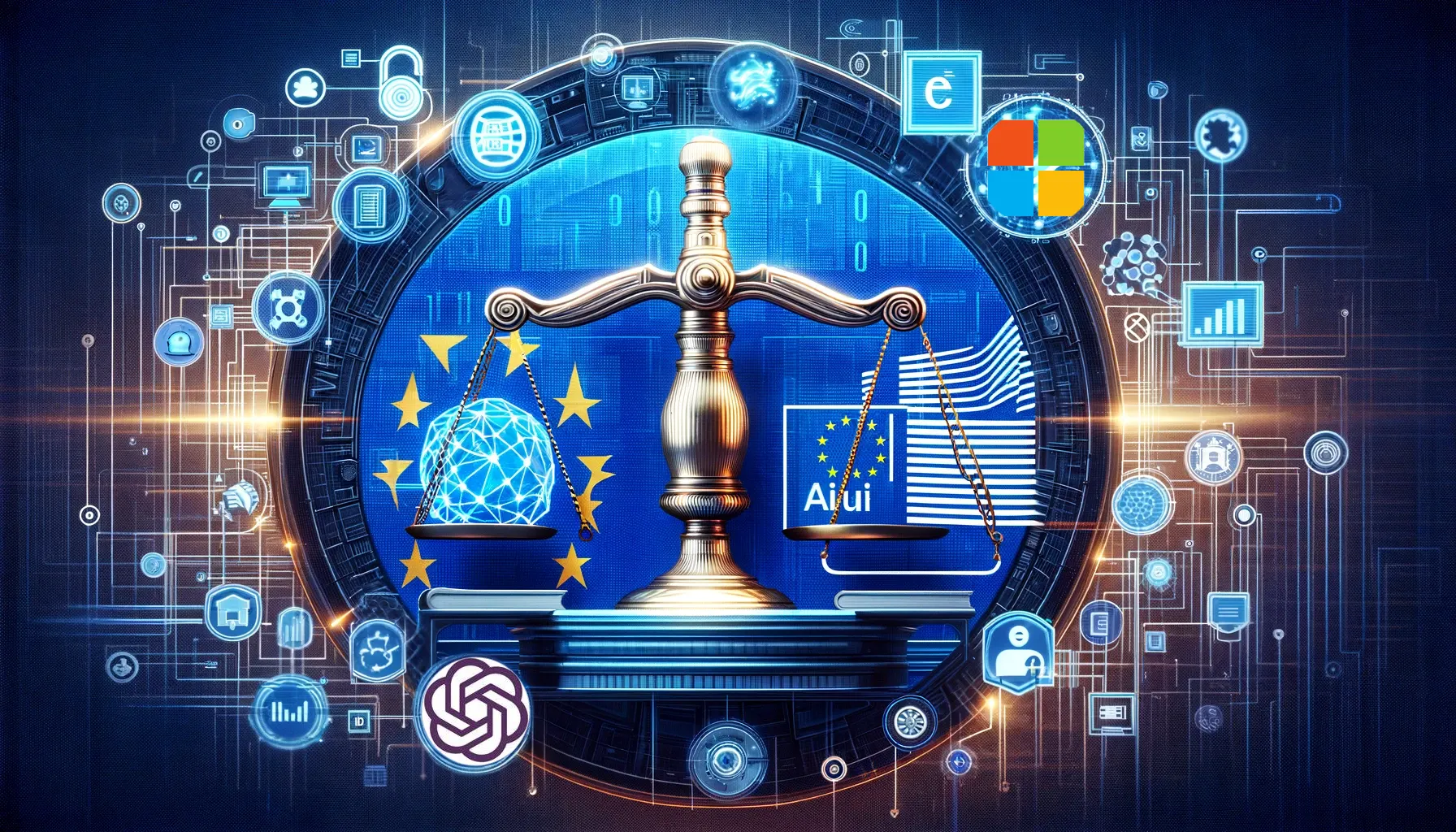Microsoft could soon find itself facing another major antitrust probe, years after a previous investigation into the dominance of its Windows software made global headlines. This time, European regulators have the tech giant's partnership with artificial intelligence firm OpenAI in their crosshairs.
The European Commission is weighing whether to launch an in-depth investigation into Microsoft's $10 billion investment in OpenAI, maker of ChatGPT and other leading AI systems. At issue are EU merger rules. If the regulators find that the companies breached competition laws, it could lead to a full-scale probe and potential restrictions on the partnership.
"We are inviting businesses and experts to tell us about any competition issues that they may perceive in these industries, whilst also closely monitoring AI partnerships to ensure they do not unduly distort market dynamics," Margrethe Vestager, Executive Vice-President in charge of competition policy for the EU, said in an official statement. “the European Commission is checking whether Microsoft's investment in OpenAI might be reviewable under the EU Merger Regulation.”
The European Commission is the EU's legislative body. Those interested in collaborating with the agency can share information via an official form.
This follows a similar decision by the UK's Competition and Markets Authority (CMA), which invited experts to provide more insights regarding the Microsoft-OpenAI partnership.
“The CMA is considering whether it is or may be the case that Microsoft’s partnership with OpenAI, or any changes thereto, has resulted in the creation of a relevant merger situation under the merger provisions of the Enterprise Act,” the UK watchdog said in an official statement in December of 2023. The CMA is also worried that a potential merger could result in “a substantial lessening of competition” in the UK’s tech industry.
Microsoft first announced its partnership with OpenAI in 2019, pledging over $10 billion to the startup co-founded by Elon Musk and Sam Altman. Since then, it has integrated OpenAI products like GPT-3 into its Bing search engine, Office suite, and Windows operating system.
The situation surrounding Microsoft's investment in OpenAI naturally raises significant questions about market influence and control. The EU is probing whether this substantial financial involvement grants Microsoft the power to sway OpenAI's strategic decisions, potentially impacting the broader AI and technology sector.
Interestingly enough, Microsoft CEO Satya Nadella recently provided testimony echoing these anti-competitive concerns. In an antitrust trial examining Google's dominance in search, Nadella asserted that the integration of AI could further entrench the search giant's leading position. He explained that Google's unmatched archive of web content already feeds the development of powerful AI systems like ChatGPT.
According to Nadella, Microsoft has repeatedly tried to loosen Google's grip. Despite investing over $100 billion in its Bing search engine, Microsoft still only commands single-digit market share.
"Everybody talks about the open web, but there is really the Google web,” he said.
Partnership or “partnership”?
The intrigue deepened when OpenAI's board—initially focused on ethical AGI development rather than investor profitability— terminated its relationship with Sam Altman as CEO. Microsoft's subsequent move to hire Altman and his team for its own AI division sparked a dramatic response. Over 80% of OpenAI's staff reportedly threatened to leave for Microsoft unless Altman was reinstated. He eventually was.
This turmoil led to significant changes within OpenAI's executive board. While traditionally dedicated to responsible AGI development over profit motives, the board underwent a reshuffle following Altman's return. Notably, Microsoft secured a non-voting seat, marking a significant shift in the board's composition and potentially its future direction. This development further underscores the intertwining interests of these two influential players in the AI landscape.
The tie-up has been key to Microsoft's ambitions in artificial intelligence. But regulators on both sides of the Atlantic are moving to tighten oversight of AI, amid growing concerns about ethics, safety and the concentration of power among a few tech giants. While the UK has staked out a relatively permissive stance to promote innovation, the EU and US are pushing for stricter regulation.
If the EU determines there are irregularities, it would open the doors to a deeper, formal investigation—which could bring serious legal consequences. If the partnership between Microsoft and OpenAI is restricted, it could hamper the former's AI strategy.
The case also illustrates the increasing scrutiny facing tech alliances as regulators reassert their authority.
Edited by Ryan Ozawa.

